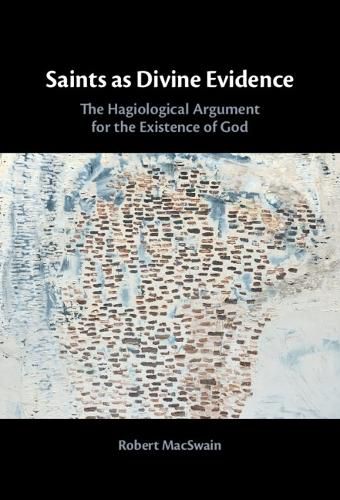Readings Newsletter
Become a Readings Member to make your shopping experience even easier.
Sign in or sign up for free!
You’re not far away from qualifying for FREE standard shipping within Australia
You’ve qualified for FREE standard shipping within Australia
The cart is loading…






In Saints as Divine Evidence, Robert MacSwain explores 'the hagiological argument' for God, that is, human holiness as evidence for divinity. Providing an overview of the contested place of evidence in religious belief, and a case study of someone whose short but compelling life allegedly bore witness to the reality of God, MacSwain then surveys sainthood as understood in philosophy of religion, ethics, Christian theology, church history, comparative religion, and cultural studies. With epistemological and hagiological frameworks established, he further identifies and analyses three distinct forms of the argument, which he calls the 'propositional', the 'perceptual', and the 'performative'. Each version understands both evidence and sainthood differently, and the relevant concepts include exemplarity, inference, altruism, perception, religious experience, performativity, narrative, witness, and embodiment. MacSwain's study expands the standard list of theistic arguments and moves the discussion from purely logical and empirical considerations to include spiritual, ethical, and personal issues as well.
$9.00 standard shipping within Australia
FREE standard shipping within Australia for orders over $100.00
Express & International shipping calculated at checkout
Stock availability can be subject to change without notice. We recommend calling the shop or contacting our online team to check availability of low stock items. Please see our Shopping Online page for more details.
In Saints as Divine Evidence, Robert MacSwain explores 'the hagiological argument' for God, that is, human holiness as evidence for divinity. Providing an overview of the contested place of evidence in religious belief, and a case study of someone whose short but compelling life allegedly bore witness to the reality of God, MacSwain then surveys sainthood as understood in philosophy of religion, ethics, Christian theology, church history, comparative religion, and cultural studies. With epistemological and hagiological frameworks established, he further identifies and analyses three distinct forms of the argument, which he calls the 'propositional', the 'perceptual', and the 'performative'. Each version understands both evidence and sainthood differently, and the relevant concepts include exemplarity, inference, altruism, perception, religious experience, performativity, narrative, witness, and embodiment. MacSwain's study expands the standard list of theistic arguments and moves the discussion from purely logical and empirical considerations to include spiritual, ethical, and personal issues as well.